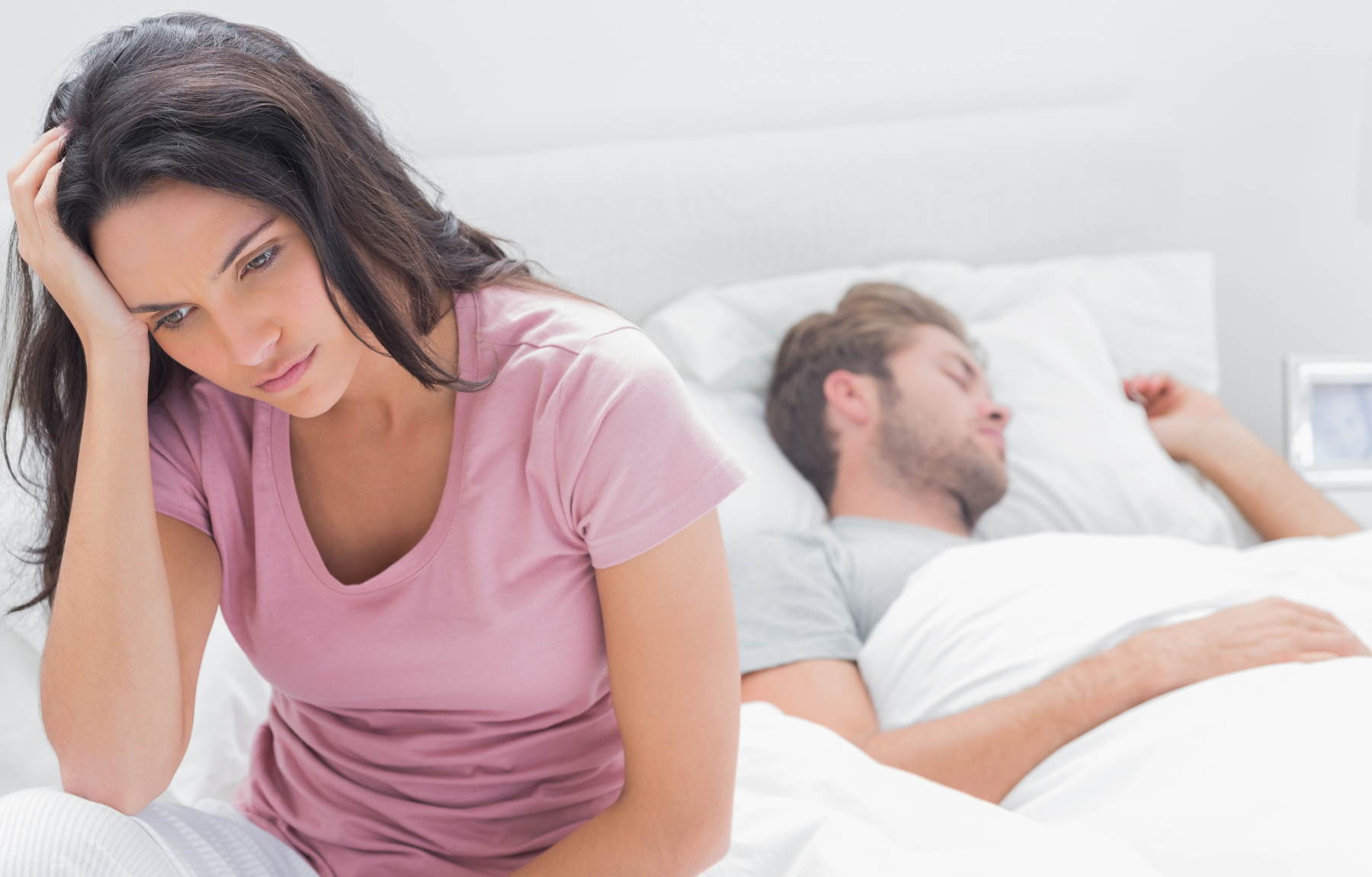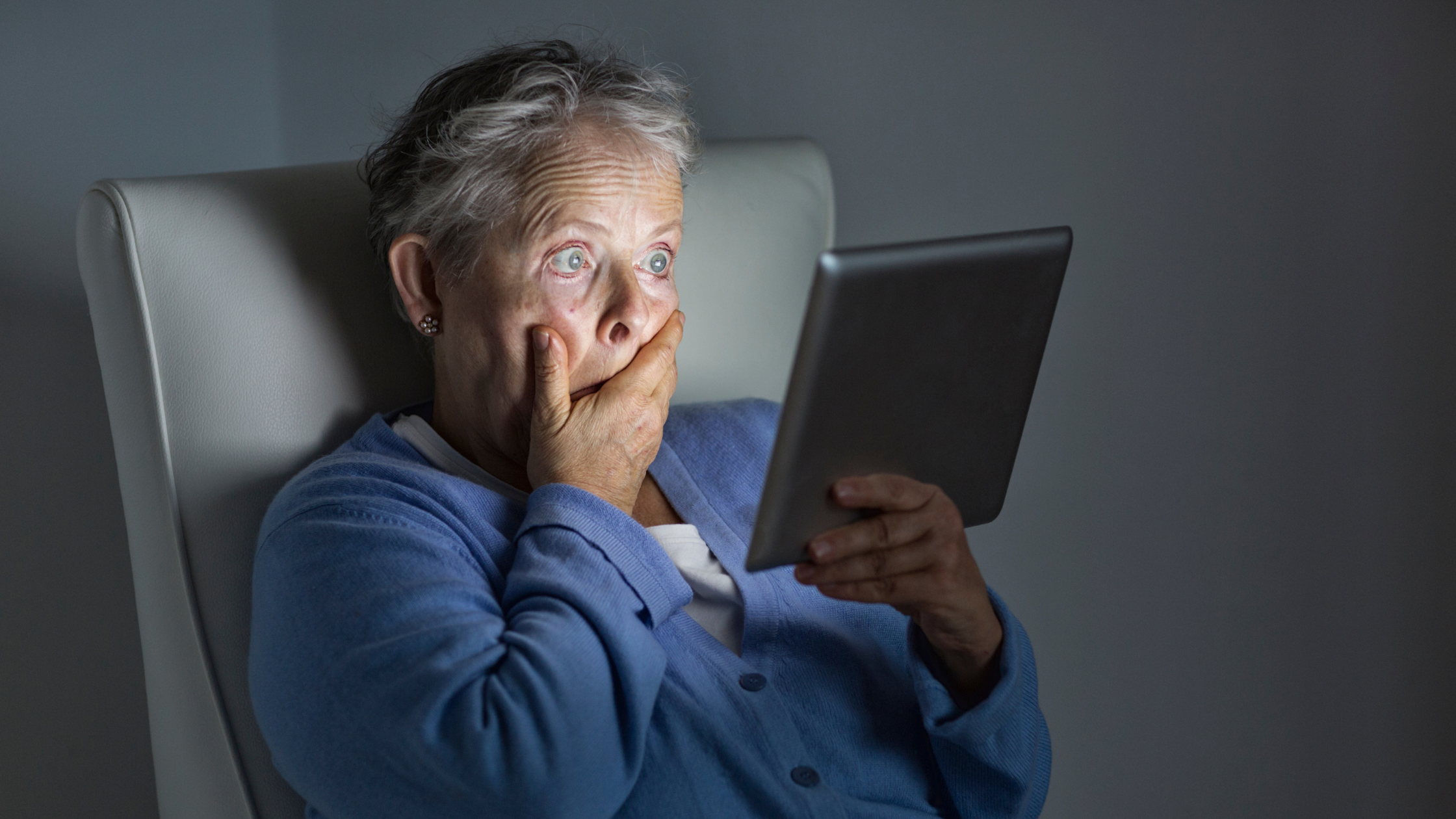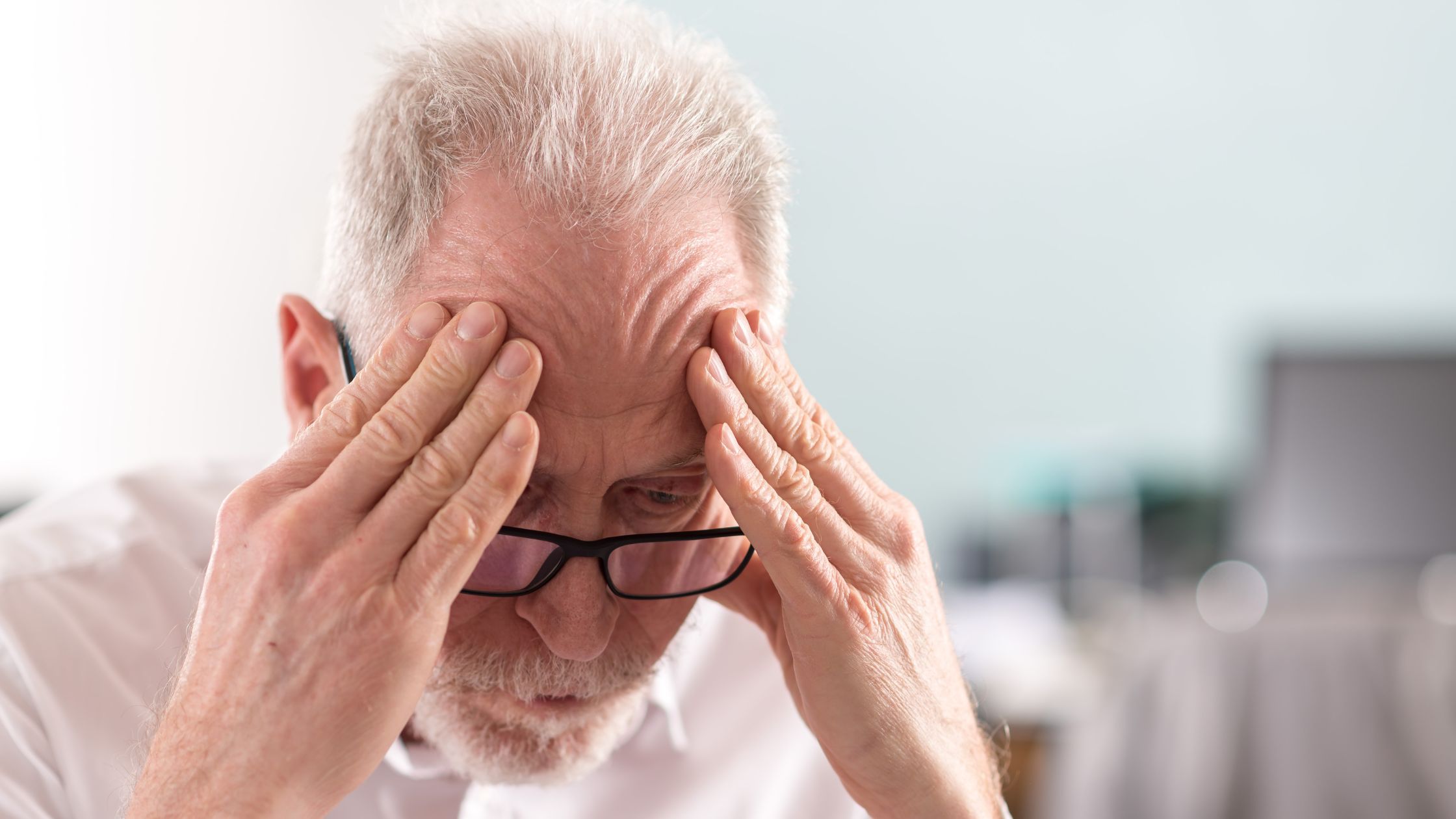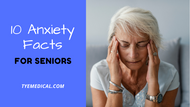10 Facts About Anxiety and How It Affects Senior Adults
Written by Tye Medical on Apr 22nd 2021
Are you feeling more anxious than usual these days? You're far from alone. Now more than ever, people of all ages are seeking key facts about anxiety, hoping to gain a clearer understanding.
It's no secret that anxiety disorder diagnoses have been on the rise for decades. Of course, that doesn't include the unreported cases.
But throw a global pandemic into the mix, and reported cases rise dramatically across all age groups. But there's no need for alarm. When you equip yourself with solid facts and understand how anxiety affects your body and your life, you'll be on track to regain control.
But how does anxiety affect senior adults? Is it different for those over 60, and what kind of symptoms might you experience as you age?
Read on for the answers and to learn other crucial facts to help you along the journey.
Armed with the right information, you can reduce anxiety symptoms and live your life more fully.
What Is An Anxiety Disorder?
When it comes to anxiety (which is fear manifested), it's all about proportion. A certain level of anxiety is considered "normal" in specific situations. Like when you hear a crashing noise coming from the bedroom upstairs, when you're at the doctor's office waiting for a critical test result, or when you must share bad news.
Under those circumstances, we're all bound to experience some proportionate anxiety.
But when your fear exceeds what the situation calls for and affects your ability to function in your daily life, it's considered an anxiety disorder.
If you consistently live in this heightened state of fear and anxiousness, it's called generalized anxiety disorder (GAD). It's referred to as "generalized" because it's not associated with one specific trigger, like a phobia or social situation.
The Anxiety and Depression Association of America (ADAA) defines anxiety generalized anxiety disorder as:
"[…] characterized by persistent and excessive worry about a number of different things. People with GAD may anticipate disaster and may be overly concerned about money, health, family, work, or other issues. Individuals with GAD find it difficult to control their worry. They may worry more than seems warranted about actual events or may expect the worst even when there is no apparent reason for concern."
GAD is prevalent in today's cultures, but management becomes much easier when you understand some critical facts about anxiety.
10 Facts About Anxiety
1. Not all Anxiety Is Bad
You don't want to eradicate all anxiety, and it's not possible anyway. It's what helps you anticipate real threats, whether physical or emotional. Sometimes you need your mind and body to respond quickly.
For example, when your boss hands down a deadline, a shot of anxiety drives you to meet it. But sometimes, even when the stressor is gone, worry and anxiety feelings remain.
When this happens, negativity hijacks your thoughts, and the "what ifs" start piling up. But you can learn to distinguish healthy anxiety from the more persistent worry that affects your life and health.
2. Anxiety Disorder Can Be Diagnosed
One of the most overlooked facts about anxiety is that it a doctor can diagnose it. You don't have to wonder or ignore it. Medical professionals can assess your symptoms and consider risk factors like life events, brain chemistry, and genetics.
Aside from GAD, other types of anxiety disorders include phobias, panic disorder, and social anxiety disorder. All can be diagnosed and managed with some support and further education.
3. Anxiety Can Cause Physical Symptoms
If you're like most people, your life moves too fast to keep up with everything you're thinking and feeling. This means that you might not notice excessive anxiety until you experience immediate physical symptoms like:
- Shaking
- Dizziness
- Sweating
- Fast heartbeat
- Migraines/headaches
- Muscle pain (back, shoulders, neck)
- Sleeplessness
Recall that the purpose of anxiety feelings is to galvanize you to action. This means your body will react somehow, even if you don't recognize anxious thoughts and negative emotions. But if you pay attention to your body, you can detect the signs, even if they're subtle.
4. Anxiety Disorder Impacts More Women than Men

According to research, about 23% of U.S. women and 14% of men have had anxiety disorder symptoms in the past year.
One of the most surprising facts about anxiety is that it's more prevalent among women. While plenty of men battle with the condition because of work and life stressors, women seem more prone.
Researchers believe that women ruminate more, which means they engage in repetitive negative thinking more frequently. The problem is that rumination often intensifies anxiety symptoms and can even prolong them.
Additionally, women deal with fluctuating hormones that increase their emotional sensitivity, often related to their monthly cycle, childbirth, and perimenopause.
And if you're a woman who serves as a primary caregiver for children or aging parents, you probably have even more to worry about. If you're an adult caregiver, check out our article 10 Ways to Manage Caregiver Stress.
5. Lifestyle Adjustments Can Ease Anxiety
If you want to combat anxiety, reducing stress is more than half the battle. So look for stress-reducing techniques that work for you.
For most people, it all starts with getting enough sleep. Everything is more stressful and scarier when you're worn out and worn down. Research suggests if you get less than eight hours of sleep at night, you're more likely to ruminate about life's problems. It's like a lack of sleep draws your brain toward negativity and anxiety.
And of course, exercise, like walking and yoga, are excellent stress reducers that can also boost mood-enhancing brain chemicals.
Additionally, you can try some mindfulness exercises to see what's most effective for you. If that doesn't suit you, try yoga. It promotes mindfulness because it requires that you focus on your body movements and breathing.
6. Pinpoint Your Anxiety Triggers to Get Relief
One of the critical facts about anxiety is that it always has a trigger. And while we all share some everyday worries, our daily triggers are likely different. Some people worry more about illness and natural disasters, while others fret about accomplishing tasks and being liked.
Whether it's an external circumstance or a lack of sleep, something sets off anxiety symptoms. Sometimes these triggers can even be psychological, like keeping company with a more aggressive or negative person.
The point is, it's helpful to determine your triggers so you can neutralize or avoid them.
To accomplish this, you might consider starting a journal to track anxiety symptoms and pinpoint triggers. Write down the circumstances of your current life, and then record your bouts of anxiety. What's happening around you and inside you when symptoms appear? Over time, you'll likely notice developing patterns.
7. Cutting Screen Time Can Help

As you consider useful facts about anxiety, remember that tech is often the enemy of peace. It's okay to enjoy the convenience, but don't forget to set boundaries.
When you notice anxiety flare-ups, try putting down your phone. A study from San Francisco State University found that students who used their phones the most also reported the most anxiety symptoms.
Researchers believe there are a couple of reasons for this.
First, scientists think that audible phone notifications trigger the brain's same neural pathways that alert you to danger. This ratchets up anxiety, especially if your phone pings often.
Second, the constant stream of news and social updates that flow from your phone to your brain only intensifies anxiety. Bad news, even in social circles, travels far and fast in this age of technology.
To protect yourself, set some tech boundaries.
- Reduce or turn off push notifications
- Take breaks from social media
- Limit exposure to news
- Turn off screens at least an hour before bedtime
8. Effective Anxiety Treatments Exist
Anxiety disorder is a real medical condition, but only 37% of Americans who have it pursue treatment.
It's a common misconception that if you've lived with anxiety for a long time, there's nothing you can do about it. Some people assume that because it's chronic, it must be untreatable.
But some highly beneficial treatments exist, such as cognitive-behavioral therapy (CBT). CBT teaches how thought management leads to changes in reactions and behaviors.
For example, it teaches you how to distinguish between what is likely to happen and what's possible. This shift in thinking can neutralize those "what ifs" that trigger anxiety.
9. It's Time to Get Help When Anxiety Interferes with Your Life
If you've battled chronic anxiety for almost as long as you can remember, you might be convinced that it's just who you are. However, while some people are naturally more prone to anxiety, an anxiety disorder isn't part of your personality or identity any more than heart disease is.
One of the defining facts about an anxiety disorder is that it disrupts your everyday life, keeping you from living to the fullest. When this happens, it's best to get the help you need to manage the condition.
10. Sometimes Anxiety Is Best Treated with Medication

Medications alone won't cure or prevent anxiety. They won't change your tendency to worry or transform your thoughts from negative to positive. But prescriptions can help curb the worst anxiety symptoms so you can focus on more therapeutic, long-term solutions.
The most prescribed anti-anxiety medications are also antidepressants. There are two classes, selective reuptake inhibitors (SSRIs) and serotonin-norepinephrine reuptake inhibitors (SNRIs). You'll find these drugs have fewer side effects than other classes of medications used to treat anxiety, like benzodiazepines (a type of sedative).
For most people, it takes a least a few weeks before noticing any medication benefits, and it might take a while to find the proper dosage and the right medicine. What works best for one person might not work at all for the next. It all depends on how your system responds to the drug.
One of the most encouraging facts about anxiety is that a combination of cognitive-behavioral therapy and medication has proven to be a successful treatment option. Once you have the right prescription, you can gain more mental clarity and focus, which can aid your therapy sessions.
Anxiety in Senior Adults

According to the Anxiety and Depression Association of America (ADAA), generalized anxiety disorder is among the most common types of anxiety in older adults. This is often because many adults with an anxiety disorder at age 60 had one in the past.
Additionally, the physical and financial challenges that come with age often create new anxiety symptoms or flare an existing anxiety disorder. This means other medical conditions and medical diagnoses can increase anxiety and lead to chronic physical symptoms like:
- Fatigue
- Weakness
- Poor concentration
- Restlessness
One of the saddest facts about anxiety is that older adults are less likely to talk about it or admit to underlying emotional battles. This can make tracing the symptoms to the cause much more challenging.
If you're experience symptoms like the above, take some time to assess your thoughts and emotions. Is it possible that you're battling underlying anxiety?
For more information about stress and anxiety, check out our article, Stress Management for Seniors: Tips for Improving Health and Wellbeing.
It's Never Too Late to Get Help for Your Anxiety
While no one is ever worry-free, you don't have to continue to live in chains. Regardless of your age, it's always worth getting the support you need to manage or diminish anxiety symptoms because life is worth living to the fullest.
Consider which coping strategies help you minimize your anxiety and stress and try opening up to someone you trust.
Ease Incontinence Worries with the Right Leak Protection
Peace of mind is invaluable, especially when it comes to urine leaks. For many people, stress and anxiety aggravate incontinence and overactive bladder. You can find out more when you read our article, Understanding the Link Between Anxiety and Overactive Bladder (OAB).
TYE Medical's LivDry brand Protective Underwear helps you keep worries at bay. We can't solve all life's problems, but we can ensure you have clean, discreet comfort wherever you go.


